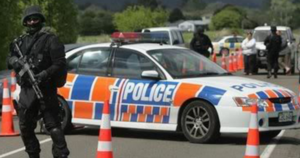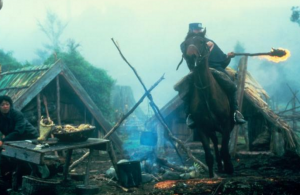 The origins of terror – or the use of unbridled violence for political ends – are complex. The literature on the subject is vast. ‘Terror’, too, is not a neutral term; its use is entirely political.
The origins of terror – or the use of unbridled violence for political ends – are complex. The literature on the subject is vast. ‘Terror’, too, is not a neutral term; its use is entirely political.
As stated elsewhere on this site, the links between native peoples, colonisation and the waging of war are of interest to us. These ideas are examined here in the specific context of the wars – or violence – perpetuated against Māori from 1843 to about 1916. However, as we saw in the terror raids of 2007, the threat of overwhelming violence against Māori still remains a default position for the New Zealand State, in its dealings with Māori.
 This section will examine some of the histories and literature dealing with State sanctioned use of violence against Māori, and other native groups further afield.
This section will examine some of the histories and literature dealing with State sanctioned use of violence against Māori, and other native groups further afield.
In some countries though, like Afghanistan and Iraq, where the use of terror is out of control, and used by all sides to achieve political outcomes, determining the indigenous histories – or the local indigenous discourse – of those countries is almost impossibly difficult, without of course intimate local knowledge.
Even then, the discourse is bound to be political, even if the historical parameters of native peoples existing over time could be discerned.
Still, it’s an interesting area to examine and think about, drawing some tentative conclusions, recognising that native peoples do have – and seek to respect – cultural protocols when seeking to write about each other. This page will discuss some of this research, and some of these issues.

